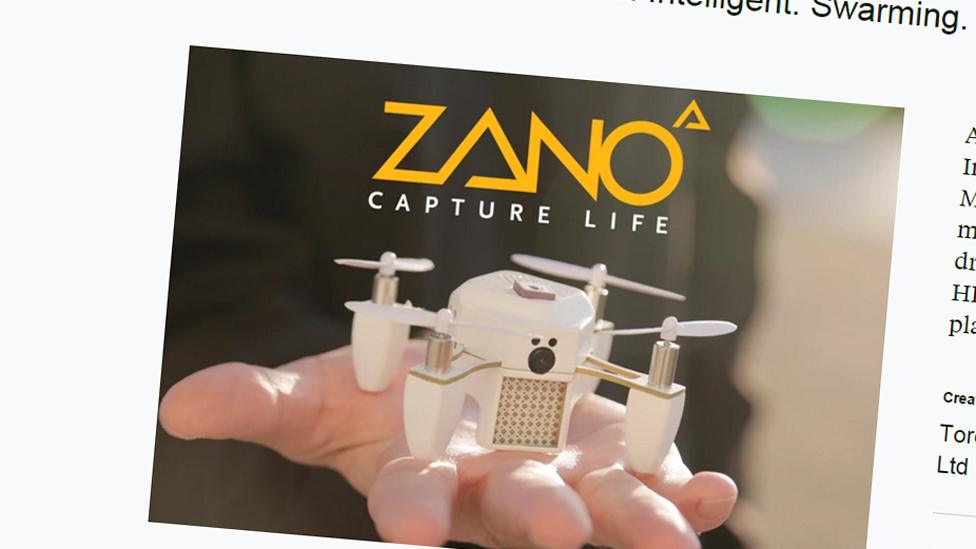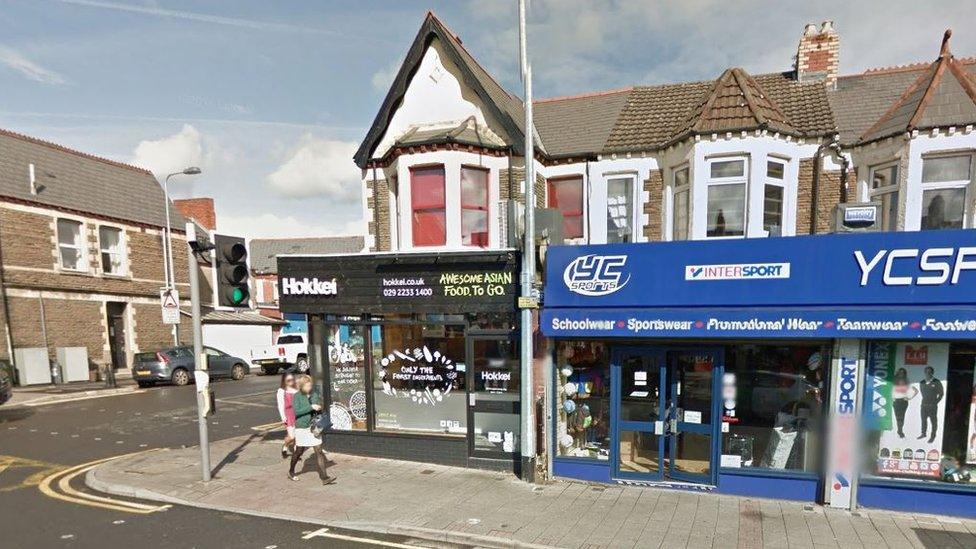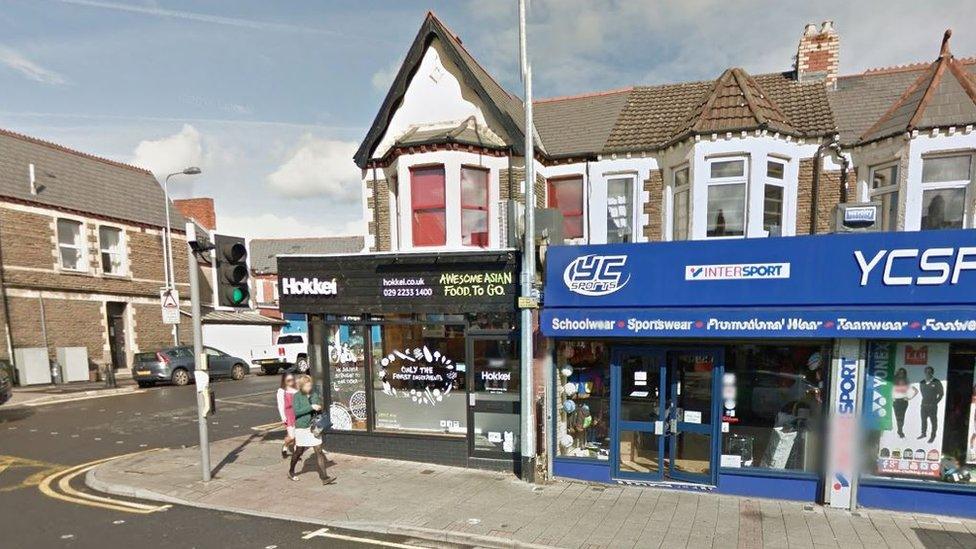Crowdfunding in Wales: The 'high-risks' and rewards
- Published

Welsh backers could be forgiven for going cold on crowdfunding after the Zano mini-drone project - which raised £2.3m - failed to take off.
The Zano, developed in Pembroke Dock, Pembrokeshire, crashed to earth in November after initially becoming Europe's most successful Kickstarter project, with 12,000 supporters.
But numerous Welsh industries and backers continue to run with the crowd.
So, what are the pros and cons for investors and those looking for a cash injection?
Bankrolling talent
"It's created a massive buzz," said Bafta-nominated director Carl Rock, whose short film, The Truthful Phone, has been partially bankrolled using crowdfunding.
More than £25,000 of the budget of the film - an adaptation of a story by Monty Python's Terry Jones, with puppets and narration from actor Michael Sheen - was raised via a Kickstarter campaign.
Kickstarter is a rewards-based platform, meaning investors get a reward, service, experience or product in return for their money.
In this case, the 580 backers will receive digital downloads, T-shirts, posters and even the chance to be a puppeteer on the film, which will be partly shot in north Wales.
Mr Rock said crowdfunding also allowed producers in the arts to "connect" with their potential audience.

The Kickstarter page for the Zano mini-drone
"If we go to another investor they know there is a real budding audience and they will look at all this press (we have received as a result).
"You can go to an investor and there is something very sexy."
The film, which has also received funding from Ffilm Cymru Wales,, external is billed as an adventure in the mould of 1980s fantasy films like Gremlins and Labyrinth.
Producer Katie Pow said the team had been "touched" after getting in contact with some of the film's backers, who "felt part of something" beyond their normal experience.

A shot used to promote The Truthful Phone
But what businesses are suited to raising money through crowdfunding?
Support and guidance body Business Wales, said it might not be right for firms with "a complicated business concept, external".
"You need to be able to explain your business idea in a way that is clear, concise and engaging," it advised.
It is estimated that by 2020, external, crowdfunding will raise £15bn for British innovators, entrepreneurs, community groups, artists, sports people and others.
The Financial Conduct Authority (FCA) has produced guidance on crowdfunding, external and regulates equity and loan-based schemes.
It says different platforms carry "different levels of risk" and warns people to be aware of the limitations of cashing in some investments.

Fact file: Crowdfunding

A method of generating funding for a service or project from a number of people, normally through social media or the internet, with four main categories:
Equity-based crowdfunding sees contributors gaining shares in an unlisted company
Donation-based crowdfunding involves contributors receiving a token or even nothing in return for donations to an organisation they want to support
In debt-based crowdfunding - or crowd lending - investors offer money in return for interest
Rewards-based crowdfunding sees people giving money in return for a reward, service or product (such as concert tickets, an innovative product, or a computer game)
Source: Financial Conduct Authority

Online platform Seedrs offers opportunities in equity crowdfunding, where investors take a shareholding in projects.
So far, it has raised £2.26m for six Welsh businesses.
While it counts tennis star Andy Murray among its wealthy "angel" and institutional investors, Seedrs says about 67% of its backers come from the "crowd".
Ben Aronsten, of Seedrs said: "Up until recently that was only really a possible arena for high-net worth individuals who had cash and really good contacts.
"What we're doing is democratising that to a certain point."
'High risk'
But he added: "We completely admit it's a long-term, high-risk asset class that, realistically, takes five to seven years before you see a potential return.
"You have got your assets and your pension and this (equity crowdfunding) should be part of of your overall portfolio."
The risks are clear for all to see.
Hokkei, the Cardiff-based takeaway opened by Masterchef finalists Dale Williams and Larkin Cen, raised £275,000 through Seedrs in June 2015, external.

Hokkei in Cardiff
But the takeaway went into administration in January.
Seedrs said while half of new UK businesses fail within the first five years, those on its side have seen a much lower rate - closer to 20%.
Mr Aronsten said: "The failure of any business is always unfortunate and, if this happens, Seedrs completes a full review of what happened for shareholders.
"However, for the most part, businesses that have funded on Seedrs are doing extremely well."
Swansea-based Veeqo, an online order management system for retailers, has raised £120,000 from about 25 investors on the site.

Donation-based schemes allow people to contribute to philanthropic causes with no expectation of financial gain or reward for their pledge.
More than £50,000 was raised for paralysed stunt cyclist Martyn Ashton, 41, of Margam, Neath Port Talbot, who needed money to save his Colnago C59 bike from being sold and to pay for his rehabilitation.
Elsewhere, people are using crowdfunding to raise money for myriad enterprises, including charity events, street-art projects and political campaigns.
But, what's the most useful advice for those thinking of putting their cash into any crowdfunded project?
Perhaps that issued by the FCA: "You should only invest money you can afford to lose."
- Published24 November 2015
- Published23 December 2015

- Published10 December 2015

- Published7 January 2016

- Published22 January 2016
